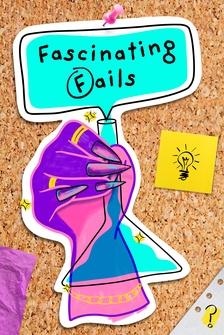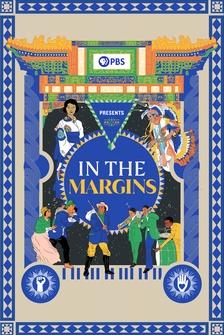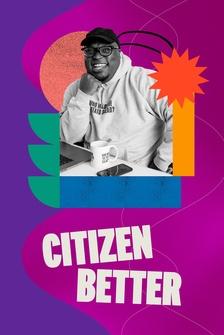"I just love paying my taxes," said no American ever.
At best, it's a stressful mess of paperwork, and at worst, a full blown theft by the government of your hard earned dollars.
- Hating taxes seems to be in our cultural DNA, and we have a history of celebrating those who defy them from Robinhood to the Boston Tea Party to a certain former President who bragged about being smart for not paying his fair share.
- Although, you could say that robbing from the rich to feed the poor is itself a form of aggressively progressive taxation.
- And yet, taxes are an integral part of human civilization.
For 5,000 years, they've been the necessary price of a functioning society, and if you itemized all the things you get in exchange for your tax dollars, the vast majority of people would probably opt to take that deal than go without those benefits.
That's not to say there haven't been unfair or oppressive tax systems, but at this point, we should admit that Ben Franklin was right when he said that taxation is inescapable as death.
So why can't we accept that?
Why all the hate?
(bright music) - Let's try a thought experiment.
Say your town decides to revamp its public parking system.
They remove all the parking meters and replace them with sensors that can identify the owner of a car.
They let everyone park wherever they want whenever they want, and then, at the end of the year, you get a bill for all the parking you did.
- Even though this sounds easier than the previous system, there's a good chance, according to some behavioral economists, that it would start to make people very angry.
That's because they'd grow accustomed to parking being free and start to perceive the year end bill as an intrusive penalty.
When you disconnect the cost from the benefit, the benefit gets taken for granted and the cost can start feeling more like a loss, and humans hate loss.
- It's called loss aversion, and it's a big part of why we hate paying taxes.
Every time you get a paycheck, your pay stub reminds you how much of it you lost before it even got into your hands.
A bimonthly sting of primal anxiety.
Someone's taking my stuff, and yet, there's very little benefit awareness to balance that out.
How often do you drive down the highway thinking, look at my tax dollars at work?
When you call 911, you don't credit the IRS for their role in getting a firetruck to your door.
When we sit down to dinner, we don't thank the FDA for making sure there's no poison in it.
In a 2008 poll by Cornell, 57% of respondents said that they had never participated in a social program, even though, almost all of them had.
Taxes pay for so many things that we rely on everyday.
There's no way we could mentally keep track of them all, and as a result, taxes can often feel less like a transaction and more like getting ripped off.
- Loss aversion doesn't just mean we hate losses, but that we hate them more than we like gains.
This is very true at tax time.
A study found that people who owed money to the IRS were more likely to cheat on their taxes than those who were due for a rebate.
In other words, we're more likely to break the law to save a buck than to make a buck.
The difference between how much Americans owe in taxes and how much they voluntarily pay is known as the tax gap, and it's estimated to be around $406 billion a year.
The majority of tax evasion is committed by people who pay their taxes at the end of the year, like investors, business owners and independent contractors rather than those who have had withheld from their paychecks.
- Our national hatred of taxes does have an upside.
The government can use the tax code to subtly encourage positive social behavior, commonly called nudges.
Charitable deductions nudge people to be generous.
Mortgage deductions nudge people to be homeowners.
Conversely, tax penalties can discourage undesirable behavior like smoking or pollution, but this unfortunately can reinforce the perception of taxes as a punishment rather than a transaction or a social obligation.
Why should I be punished?
The thinking goes for doing exactly what our capitalist system encourages us to do, make money.
- These nudges called tax expenditures have been shown to be effective at influencing human behavior, but as well meaning as they might be, they also tend to benefit the wealthy and corporations because they're the ones who have the time and resources to investigate all the little tricks that can save you a buck.
They also make the U.S. tax code complicated, very complicated.
- According to the IRS, it takes the average American about 11 hours to file their taxes.
It's hard to convey to our international viewers how difficult and confusing filling out all those forms can be while knowing that any mistake you make can land you in hot water with the Feds.
So it's not surprising that many people, myself included, opt to pay someone else to do it.
Americans spend roughly $10 billion a year on professional tax preparers and another two billion on tax preparation software.
In time and money, it's estimated that the tax filing system costs the U.S. between 140 and $215 billion a year.
- And the weird thing is it doesn't have to be this way.
For most Americans, everything you send to the IRS, they already about you.
They receive all the same forms that your employer and bank send to you, and as long as you're not itemizing deductions, they don't technically need you to do the homework like some kind of sadistic math teacher who will send you to prison for a wrong answer.
- The U.S. is one of the only wealthy countries that puts its citizens through this annual stress test.
In countries like the Netherlands, Sweden, Japan, the process only takes minutes.
The government sends you a card with all the calculations already done.
You can check the math if you want, otherwise, just sign it and send it back.
- That's it?
- That's it.
- Well, who wouldn't want that?
- Well, the tax preparers, for one.
As we mentioned before, it's a billion dollar industry and they rely on taxes to be such a headache that no one would want to do it themselves.
They've spent a lot of money lobbying against legislation that would simplify the filing process, and they even persuaded the IRS not to offer its own free filing service.
- Another group that prefers things this way is anti-tax activists.
If your mission is to persuade people that taxes are bad, it helps if they associate them with negative emotions like frustration and fear.
As Ronald Reagan famously put it, "Taxes should hurt."
The last thing they want is for Americans to have a more pleasant relationship with the IRS.
- And we should.
Aside from the headache of filing, we don't have it so bad, at least compared to other countries.
According to the Tax Policy Center, U.S. tax revenue equaled 24% of gross domestic product.
Well below the 34% weighted average for other OECD countries.
Only Chile, Ireland and Mexico were lower on that list.
Americans seem to be in the paradoxical situation of having some of the lowest taxes in the world, but the most angst about them.
- But there is a bright side.
Despite our hangups, Americans are actually really good about paying their taxes.
Our voluntary compliance rate, a fancy way of saying how many people pay their taxes honestly and on time is higher than most industrialized nations.
Surveys find that the vast majority of Americans across the political spectrum see tax paying as a patriotic civic duty.
In fact, the only thing that seems to shake our faith in the system is the suspicion that others aren't paying their fair share.
Why should I sweat over all these forms when rich people and corporations are cheating?
- That's why many behavioral economists believe that the two best ways to improve America's contentious relationship with taxes would be making it easier for ordinary people to file and closing the loopholes that make the game feel rigged against them.
- After all, the IRS is another government agency that's funded by your taxes.
They serve you by keeping the nation's lights on, so to speak.
We don't have to think of them as the Boogeyman, but as the friendly neighborhood paycheck shrinker.
- Maybe that's too optimistic.
- Yeah.















